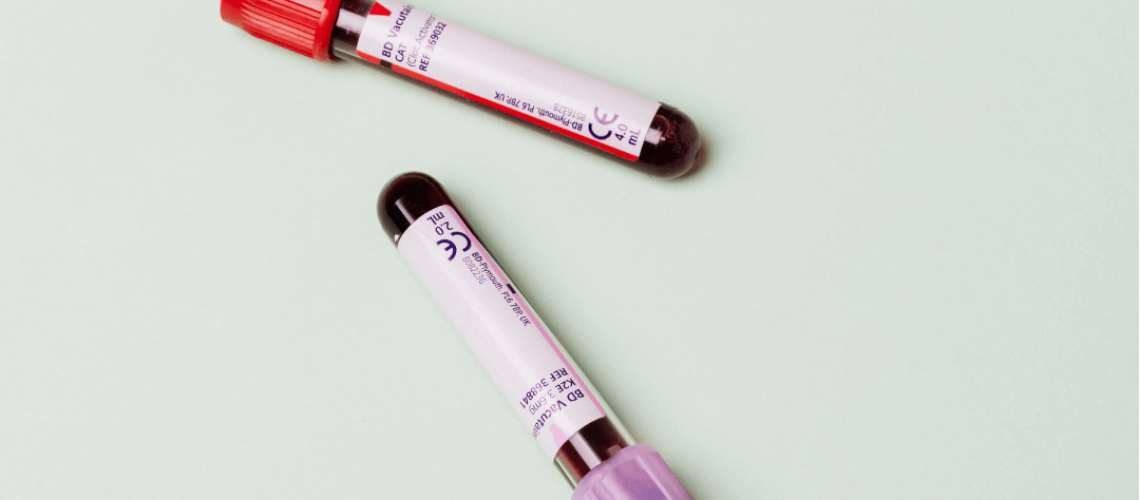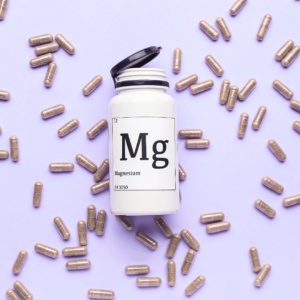Have you been to the doctor with menstrual health and/or fertility issues only to be told your blood tests are “normal”?
If you have, you’re not alone. This is a very common experience for so many women navigating reproductive health challenges which can understandably lead to feeling frustrated and helpless. If the tests say everything is “normal”, where do you go from there?
The reality is, that testing for reproductive health conditions can be complex and nuanced. And, there is also so much that can potentially be tested! If you have been told your tests are normal, the next question is, what was actually tested? If it was just a FBC (full blood count) and perhaps one iron marker, that really isn’t giving us the full picture.
The next question is: When were the tests done in your menstrual cycle? Certain tests need to be done at specific times in the menstrual cycle for the results to be meaningful. This can make all the difference in interpreting specific hormone markers.
Below are some blood tests you may like to consider when speaking with your trusted health professional when digging deeper into your menstrual health concerns.
FSH (follicle stimulating hormone):
Needs to be tested on day 2 or 3 of your period. May be useful to test when there are no periods (amenorrhoea), irregular cycles, short cycles, long cycles, PCOS, POI (premature ovarian insufficiency), perimenopause, delayed puberty and fertility investigations.
LH (luteinizing hormone):
Needs to be tested on day 2 or 3 of your period. May be useful to test when there are no periods (amenorrhoea), irregular cycles, short cycles, long cycles, PCOS, POI (premature ovarian insufficiency), perimenopause, delayed puberty and fertility investigations.
Estradiol (E2):
Best tested on day 2 or 3 of your period. May be useful to test when experiencing painful periods, heavy periods, light periods, PMS, no periods (amenorrhoea), irregular cycles, short cycles, long cycles, PCOS, POI (premature ovarian insufficiency), perimenopause, delayed puberty and fertility investigations.
Sex Hormone Binding Globulin (SHBG):
Can be useful to test if there are signs of elevated estrogen (heavy, painful periods and PMS) or elevated testosterone (long menstrual cycles, excessive hair growth, acne, PCOS), liver health and when coming off the oral contraceptive pill.
*Note: the oral contraceptive pill increases SHBG, this should be taken into account if testing whilst taking the pill as well as after coming off the pill.
Prolactin:
Can be useful to test when there is anovulation or amenorrhoea (no periods for 3+ months), irregular menstrual cycles, long menstrual cycles, PCOS and fertility investigations.
Testosterone:
Can be useful to test when there are signs of elevated testosterone such as anovulation, long menstrual cycles, acne, hirsutism (excessive hair growth), weight gain, hair loss, fertility investigations or low testosterone such as low libido, low energy, irregular menstrual cycles, fertility investigations, depression or anxiety.
Progesterone:
Often referred to as a “day 21 progesterone test” Progesterone needs to be tested 7 days after ovulation to get an accurate reading, regardless if it is day 21 for you or not. Progesterone is useful to test when there are short cycles, premenstrual spotting, painful periods, heavy periods, PMS, fertility challenges, history of miscarriage, sleep issues and mood changes such as anxiety and depression.
Additional tests to consider when investigating menstrual health and/or fertility challenges:
Consider this a starting point when beginning to dive into investigating potential underlying imbalances when it comes to supporting menstrual health and/or fertility. There are many other various tests specific to the individual that can be beneficial when digging for answers.
Another thing to take into account when doing blood tests for your menstrual health is the big difference between the general population reference ranges for tests and optimal/functional reference ranges. We don’t want to be just “okay” falling within a large reference range, as for many people, being on the low or high end of normal will be enough to cause symptoms. We want to strive for optimal, not just scraping by.
At Femtek we recommend seeking out a qualified holistic women’s health practitioner with experience in this area to assist you in interpreting your blood test results through optimal ranges.
If you have, you’re not alone. This is a very common experience for so many women navigating reproductive health challenges which can understandably lead to feeling frustrated and helpless. If the tests say everything is “normal”, where do you go from there?
The reality is, that testing for reproductive health conditions can be complex and nuanced. And, there is also so much that can potentially be tested! If you have been told your tests are normal, the next question is, what was actually tested? If it was just a FBC (full blood count) and perhaps one iron marker, that really isn’t giving us the full picture.
The next question is: When were the tests done in your menstrual cycle? Certain tests need to be done at specific times in the menstrual cycle for the results to be meaningful. This can make all the difference in interpreting specific hormone markers.
Below are some blood tests you may like to consider when speaking with your trusted health professional when digging deeper into your menstrual health concerns.
FSH (follicle stimulating hormone):
Needs to be tested on day 2 or 3 of your period. May be useful to test when there are no periods (amenorrhoea), irregular cycles, short cycles, long cycles, PCOS, POI (premature ovarian insufficiency), perimenopause, delayed puberty and fertility investigations.
LH (luteinizing hormone):
Needs to be tested on day 2 or 3 of your period. May be useful to test when there are no periods (amenorrhoea), irregular cycles, short cycles, long cycles, PCOS, POI (premature ovarian insufficiency), perimenopause, delayed puberty and fertility investigations.
Estradiol (E2):
Best tested on day 2 or 3 of your period. May be useful to test when experiencing painful periods, heavy periods, light periods, PMS, no periods (amenorrhoea), irregular cycles, short cycles, long cycles, PCOS, POI (premature ovarian insufficiency), perimenopause, delayed puberty and fertility investigations.
Sex Hormone Binding Globulin (SHBG):
Can be useful to test if there are signs of elevated estrogen (heavy, painful periods and PMS) or elevated testosterone (long menstrual cycles, excessive hair growth, acne, PCOS), liver health and when coming off the oral contraceptive pill.
*Note: the oral contraceptive pill increases SHBG, this should be taken into account if testing whilst taking the pill as well as after coming off the pill.
Prolactin:
Can be useful to test when there is anovulation or amenorrhoea (no periods for 3+ months), irregular menstrual cycles, long menstrual cycles, PCOS and fertility investigations.
Testosterone:
Can be useful to test when there are signs of elevated testosterone such as anovulation, long menstrual cycles, acne, hirsutism (excessive hair growth), weight gain, hair loss, fertility investigations or low testosterone such as low libido, low energy, irregular menstrual cycles, fertility investigations, depression or anxiety.
Progesterone:
Often referred to as a “day 21 progesterone test” Progesterone needs to be tested 7 days after ovulation to get an accurate reading, regardless if it is day 21 for you or not. Progesterone is useful to test when there are short cycles, premenstrual spotting, painful periods, heavy periods, PMS, fertility challenges, history of miscarriage, sleep issues and mood changes such as anxiety and depression.
Additional tests to consider when investigating menstrual health and/or fertility challenges:
- Full thyroid panel including TSH, fT3, fT4, reverse T3 and thyroid antibodies
- Iron studies
- B12
- Vitamin D
- Blood sugar
- Homocysteine
- CRP
- Clotting factors (especially if there is a history of recurrent pregnancy loss and/or heavy periods)
- Liver function tests
- Lipid profile
- Coeliac antibodies
Consider this a starting point when beginning to dive into investigating potential underlying imbalances when it comes to supporting menstrual health and/or fertility. There are many other various tests specific to the individual that can be beneficial when digging for answers.
Another thing to take into account when doing blood tests for your menstrual health is the big difference between the general population reference ranges for tests and optimal/functional reference ranges. We don’t want to be just “okay” falling within a large reference range, as for many people, being on the low or high end of normal will be enough to cause symptoms. We want to strive for optimal, not just scraping by.
At Femtek we recommend seeking out a qualified holistic women’s health practitioner with experience in this area to assist you in interpreting your blood test results through optimal ranges.
Lauren Curtain
Lauren Curtain is a registered Chinese medicine practitioner, women's health focused acupuncturist and herbalist. She centres her practice around supporting women to navigate their hormones, menstrual cycles and fertility using a combination of education (all the women’s health info you didn't get in high school), acupuncture, herbal medicine, nutrition and lifestyle support. Lauren believes every woman has the right to know how her body works, and what she can do to optimise not only her reproductive health, but whole body health. Lauren has seen firsthand with her patients the dramatic improvements that can be made to reproductive health through simple, inexpensive, non-invasive techniques and firmly believes symptomatic periods and menstrual cycles can be a thing of the past and we can embody a thriving fertile life.





